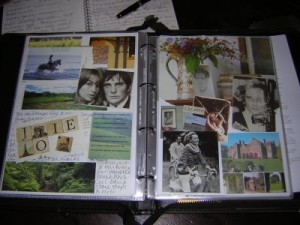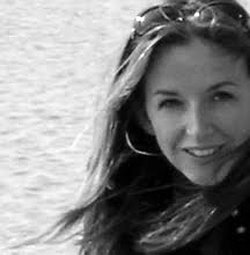Let It Go
Years ago, at a party in Brighton I was introduced to a writer whose book had just been nominated for the Booker Prize. I had just started telling people I was writing my first novel. He was gracious, charming. ‘What’s your process?’ he said. Process? My mind went blank. Writers have processes?
 If I have learnt anything about my ‘process’ since then, I guess it is one of distillation. There’s the initial spark: Women Spitfire pilots? Women fought in the Spanish Civil War? There was an ‘artists’ Schindler’? Once the fire is lit, you put all the ingredients in – years of research, piles of books, hours in archives and talking to people. And you end up with a big pile of folders.
If I have learnt anything about my ‘process’ since then, I guess it is one of distillation. There’s the initial spark: Women Spitfire pilots? Women fought in the Spanish Civil War? There was an ‘artists’ Schindler’? Once the fire is lit, you put all the ingredients in – years of research, piles of books, hours in archives and talking to people. And you end up with a big pile of folders.
I still write longhand to begin with – there’s a connection between your imagination and the story, that your hand slows down and makes right in a way that pounding away on a computer keyboard doesn’t. Equally, I can’t edit on screen – I don’t see the mistakes.
 By the time you come to type the first draft, it’s already a first edit. I also write visually. Back in the olden days before Pinterest and Spotify or Deezer, each book had scrapbooks and storyboards, and CD playlists. All these notes, and pictures feed in to that first, exhilarating draft.
By the time you come to type the first draft, it’s already a first edit. I also write visually. Back in the olden days before Pinterest and Spotify or Deezer, each book had scrapbooks and storyboards, and CD playlists. All these notes, and pictures feed in to that first, exhilarating draft.
Oh the joys of a dirty first draft. Remember Hemingway: ‘all first drafts are sh*t’. I love the joy of it – typing as fast as you can to get the energy of the handwritten draft on the screen, breathing life into the bones of the story.
You know it’s working when you dream about the characters, when they are chattering in your consciousness as you take a shower or walk. It’s a kind of magic, and it’s a surprise (and relief) every time when you find the story has legs and it gathers its own momentum.
One thing I’ve learnt is: get it down, write the story from beginning to end. Do not edit as you go. Your writing head and your editing head are two different things. Or as some people have put it: ‘write without fear, edit without mercy’. The next draft will be different – all those ‘xxx’ marks will be filled in painstakingly.
 If you’re worried about writing yourself off down a factually incorrect tangent, in my experience if you’ve done your research you know more than you think you do, and when you go back to check your fiction, the ‘xxx’, more often than not will tie in with the facts. Historical fiction isn’t history – its main job is to tell a good story, and to entertain, and that’s in your hands, not the research books.
If you’re worried about writing yourself off down a factually incorrect tangent, in my experience if you’ve done your research you know more than you think you do, and when you go back to check your fiction, the ‘xxx’, more often than not will tie in with the facts. Historical fiction isn’t history – its main job is to tell a good story, and to entertain, and that’s in your hands, not the research books.
As Stephen King described it, in the first draft you are telling yourself the story. In the second you are making sure that the whole book supports that story, taking out any dead wood. There’s time for editing and polishing later, just enjoy telling the tale and with luck your readers will enjoy it too.
It’s a real challenge pulling apart a story and putting it back together again during the editing process. I’m always in awe of people who like doing fiddly things – miniature painters, watchmakers, embroiderers. Even jigsaws defeat me. The way my mind works is forwards, big creative strokes – I’m not a natural go-back-overer or nitpicker and copyediting is like unpicking stitches in a tapestry.
 Once it’s done the whole picture is a lot smoother, tighter, everything is in the right place but the process is hard. I’m lucky to work with editors I admire and respect, and I always, always listen to their suggestions. 99% of the time I will make the cuts or rewrites they recommend – by that stage the book is already moving away from you, to the reader, and I care more about it working for the reader than I do about that glorious (but not entirely necessary) passage I wrote on page 171.
Once it’s done the whole picture is a lot smoother, tighter, everything is in the right place but the process is hard. I’m lucky to work with editors I admire and respect, and I always, always listen to their suggestions. 99% of the time I will make the cuts or rewrites they recommend – by that stage the book is already moving away from you, to the reader, and I care more about it working for the reader than I do about that glorious (but not entirely necessary) passage I wrote on page 171.
A manuscript is a living thing, and keeping the life in it without it running away with you is tricky. A description I love is Annie Dillard’s from ‘The Writing Life’: “A work in progress quickly becomes feral. It reverts to a wild state overnight. It is a lion you cage in your study. As the work grows, it gets harder to control; it is a lion growing in strength. You must visit it every day and reassert your mastery over it. If you skip a day, you are, quite rightly, afraid to open the door to its room. You enter its room with bravura, holding a chair at the thing and shouting, “Simba!”
Each stage, each edit is a little closer to that moment when you release it ‘out there’ in the world. It’s no longer just yours, it belongs to everyone, and everyone is entitled to their opinion about it. All you can do is make the book the best it can be.
Once it is gone, this world that you shaped is now fixed, and you are no longer part of it. That’s been the single most amazing thing about seeing work published – hearing from people how they’ve made the stories their own.
It’s the most enormous privilege to have people reading and responding to your work. Equally, it’s amazing how protective you feel about your characters when you get a duff review.
The best advice is not to take any notice of good or bad reviews and just get on with doing the best work you can. Not everyone is going to love your work, and you have to step back and just let it be.
Letting go is all part of the process, after all.
—
Kate Lord Brown is an internationally successful author. Her novel The Perfume Garden was shortlisted for the Romantic Novel of the Year 2014. She holds an MA in Creative Writing. ‘The Christmas We Met’ is out now.
Find out more at Kate’s website, katelordbrown.com and follow her on Twitter at @katelordbrown
Category: Contemporary Women Writers, How To and Tips

























I retweeted this. I remember when I realized writers have a process and, what’s more, that each is different.
As a freelance editor and proofreader, I love that you mentioned working with your editors. It’s an important part of the process–all outside feedback is–though writers should, in my opinion, hold off on seeking it out at first.
Will bookmark.
Thanks,
Lauren I. Ruiz
Useful interesting stuff. Thank you. One of my own problems is editing too much as I go along, and so losing impetus.
I’m about to begin a major edit, and found your article at the right moment. I especially like: “In the first draft you are telling yourself the story. In the second you are making sure that the whole book supports that story, taking out any dead wood.” Thank you for the reminder that I’m not alone!
Really enjoyed your insights – and it’s a reminder for me to reflect and articulate on my own process as I start work on a new kind of book (for me) too. Thank you!
Wonderful insight! I just finished a blog post about “getting closer” and stumbled upon this essay on your process. The blog post was in part a diversion from having to open my office door to try and tame the wild manuscript I purposely left alone for five days over the holiday. I will grab my whip and chair and get back to work keeping your words of wisdom for inspiration!